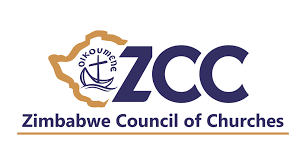The Zimbabwe Council of Churches (ZCC) has raised concerns over the ongoing water crisis in Bulawayo, urging authorities to implement a clear and reliable timetable to ensure all residents have access to water.
These concerns were voiced during the 2024 midyear review meeting with various stakeholders on Thursday.
Currently, Bulawayo residents are enduring a 120-hour water-shedding schedule, with some going weeks without water due to low levels in the city’s dams.
Bishop Mpande Lazarus Khanye, a member of the ZCC, expressed the churches’ growing alarm over the dire water situation in the city.
“We are having this dialogue with stakeholders organised by the Zimbabwe Council of Churches (ZCC). Our main concern, particularly in Bulawayo, is the water issue. They say there is a water schedule for opening and closing, but in reality, water is usually available between 2 and 4 a.m. when people are asleep. When they wake up, there’s no water, and they’re forced to go another week without it,” he said.
Bishop Khanye said the lack of a specific, reliable time for residents to access water is worrying.
“There are toilets to be used, people need to wash, but there is no access to water,” he added.
The Bishop also highlighted issues with the city’s billing system.
“Another concern is this billing system. How often do we get water during the month? Maybe three days, but the bills are still high, and people are blamed for not paying. How can they pay for something they’re not receiving?” said Khanye.
He also pointed out that when residents do pay their bills, the balance is often not reflected on their receipts.
“When we pay, the council gives a receipt that doesn’t show the balance. Later, you find your bill is high again. Why isn’t it specific about how much has been paid? Someone just tells you through the computer,” Khanye stated.
He called for accurate meter readings to ensure residents are billed correctly.
“There should be original meter readings, so people are charged correctly. We’re tired of estimated bills; that practice must stop so people know how much they’re using. Estimated bills are just a way to manipulate people,” he said.
In response, Bulawayo City Council (BCC) Procurement Officer, Patson Nyathi, recently clarified the components of a typical bill during a meeting in Pumula.
“A bill consists of rates, fixed charges, sewer charges, and solid waste management. For rates, regardless of whether you receive water or not, the council charges for the land occupied, which is fixed and included in the bill. What makes the bill fluctuate is water consumption,” Nyathi explained.
“Even if you don’t get water, you’ll still receive a bill, and if you don’t pay, the bill will accumulate. We also have penalties. If you’re not paying, your bill will keep increasing.”
Nyathi explained that the local authority encourages residents to pay their bills to reduce penalty charges.
“The reason we charge fixed fees is to cover maintenance costs. To maintain pipelines or services, we incur costs—there are blockages, flushing, all of which require service providers. When the sewer blocks, there are costs involved, like finding a driver, vehicle, fuel, and materials to clear the blockage. These costs are what contribute to the fixed charges in the bills,” Nyathi explained.

